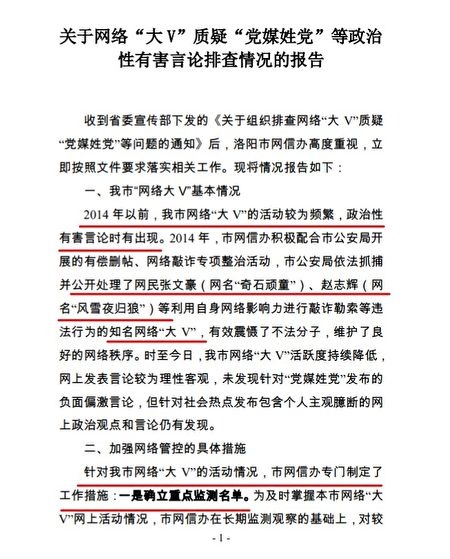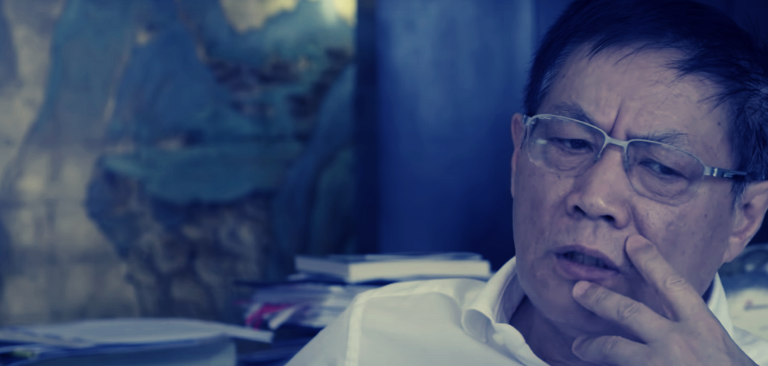The Chinese Communist Party (CCP) has been targeting social media influencers with more than 500k followers on Sina Weibo, a China-based social media platform that resembles Twitter. The targeting of these social media influencers, referred to as “Big Vs,” is one of the regime’s many efforts to restrict online speech.
During a public appearance in 2016, President Xi Jinping said that the media should serve the CCP. Despite the heavy criticism his remarks attracted, authorities went ahead to censor any social media comment opposing the notion that the media should serve the government.
The Epoch Times acquired leaked documents from Henan Province’s Luoyang City government, showing how authorities carried out the censorship.

Apparently, the Luoyang Cyberspace Administration was ordered by the Henan Provincial Propaganda Department to target social media influencers, according to a document dated August 9, 2016, titled “Report on the Investigation of Internet ‘Big Vs’ Who Question ‘the Media Must Serve the Party’ and Other Politically Harmful Remarks.”
The CCP also recruits these social media influencers to spread its propaganda and skew public opinion in its favor. According to the leaked documents, recruiting these “red” influencers is a priority in evaluating the performance of CCP officials.
The documents show that the Luoyang municipal government was required to recruit at least 5 of these “red” influencers. There was a three-year plan to recruit these influencers from various fields, such as media, politics, and culture.
The documents reveal there are dire consequences for posting content that is critical of the CCP. Owners of accounts with a large following are arrested and falsely charged with criminal offenses such as blackmail and extortion. Some of the social media influencers who suffered Luoyang’s crackdown on social media influencers include Zhao Zhihui (aka “Wolf Returning in Windy Snowy Night”) and Zhang Wenhao (aka “Strange Stine Naughty Boy”).
The leaked documents revealed that the Luoyang Cyberspace Administration created a list of social media influencers to target. Round-the-clock, on-duty personnel monitored their accounts, and they would delete any comments critical of the regime. The city’s internet watchdog even monitored those accounts that do not post political commentary.
In China, posting anything critical of the CCP can be disastrous. On September 22, Ren Zhiqiang, known online as Big Cannon Red, was imprisoned for 18 years on charges of “corruption, bribery, misappropriation of public funds, and abuse of power.”
In February 2016, Ren bashed the CCP for wanting the media to serve it. A few months later, Ren, who is the son of a former CCP official, was suspended from the party for a year, and his Weibo account, which has more than 37 million followers, was removed.
He was arrested this year shortly after publishing an article criticizing the CCP for hiding the truth about the spread of the coronavirus. He also called Xi Jinping, “a clown who insists on being an emperor.”
Other popular social media figures suppressed by the CCP include Charles Xue, Dong Rubin, He Weifang, and Qin Zhihui.













